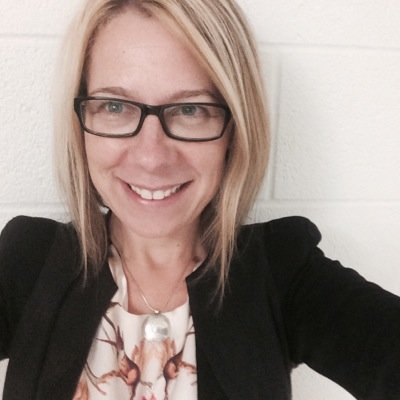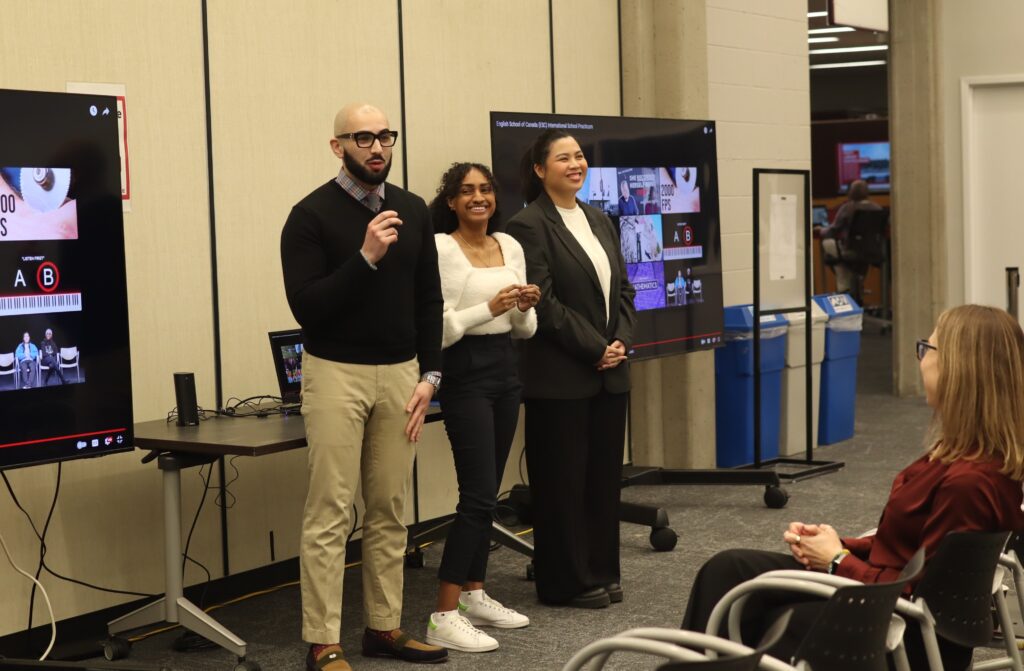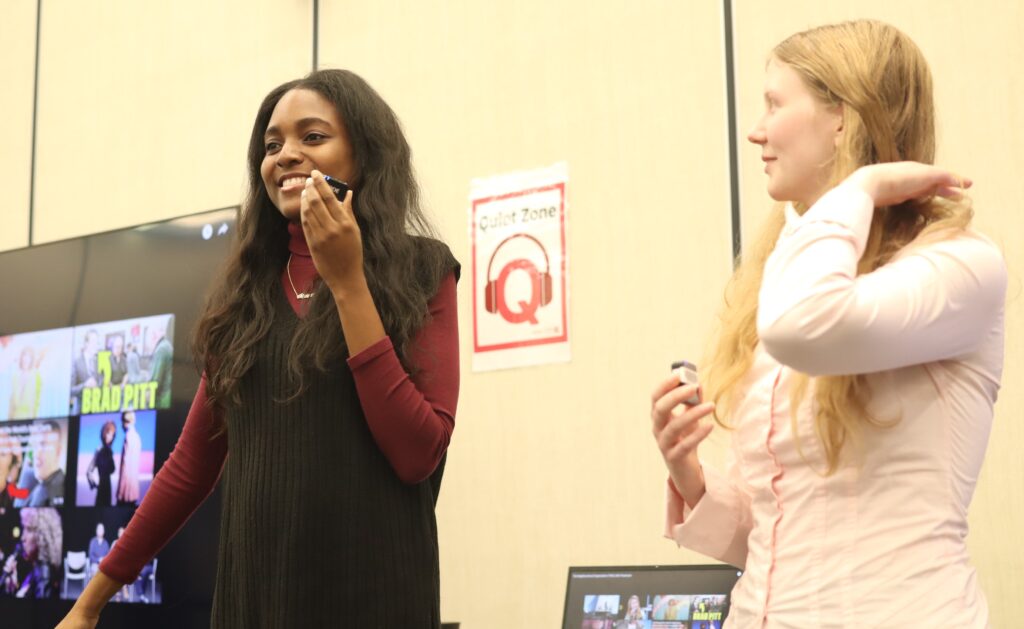
[tta_listen_btn listen_text=”Click to listen to this story” pause_text=”Pause” resume_text=”Resume” replay_text=”Replay” start_text=”Start” stop_text=”Stop”]
York University undergraduate students in the Teachers of English to Speakers of Other Languages (TESOL) program participated in an initiative to create open educational resource (OER) videos aimed at improving the practicum experience of future program participants.
Students in programs such as TESOL must often complete field placements in a wide range of environments – from post-secondary academic bridging programs to community-oriented Language Instruction for Newcomers to Canada programs. Because these environments are unique, students are often unprepared for these teaching contexts.

That’s why the Department of Languages, Literatures & Linguistics students in Professor Saskia Van Viegen’s TESL3300 class were assigned a project that could help.
Van Viegen’s 14 students received instruction on digital media creation, then formed groups to complete videos about the diversity of experiential education environments – culminating in the creation of four Creative Commons-licensed OER videos to help orient future English as a second language (ESL) teachers to their practicum. The students did this while completing their own field placement, gaining paid practicum experience and hands-on learning about digital media creation in the process.

“I think this kind of digital storytelling project is wonderful,” says Dawei Jin, one of Van Viegen’s students. “At first I wasn’t sure what the connection was between this work and teaching ESL. But after we started, we experienced challenges with collaboration, video editing – all things we didn’t know how to do. We struggled to tell our story, but eventually we figured it out. That’s exactly how ESL students will experience the process of learning English. This program helped me understand the difficulties encountered by our students.”
“This work increases access to work-integrated learning for students, especially equity-deserving students,” says Van Viegen. “It helps them feel more connected to each other, to their program and to a community, by offering enhanced opportunity for participation, stronger partnership with field placement hosts and greater integration with technology.”

The project was a partnership between TESOL and York University Libraries’ Media Creation Lab, funded by the Co-operative Education & Work-Integrated Learning (CEWIL) Innovation Hub program.
One of the co-founders of the Media Creation Lab, librarian Kris Joseph, sees the initiative as the culmination of a vision the Libraries had for the lab during its inception. “The lab launched in 2022, but I think Saskia’s project is a sign that the booster rockets have been ejected and the shuttle is heading out to explore space. This kind of work ticks all the boxes for us: digital literacy and media creation, experiential learning and the development of open, accessible resources for the benefit of others.”
Sarah Coysh, associate dean of digital engagement and strategy at York University Libraries, adds: “One of the biggest successes of this project was that the grant included funds for a dedicated librarian as well as additional library media lab staff to support the students’ learning and media creation work. Saskia’s foresight in this area ensured York University Libraries had the capacity to partner on this project, and this is a terrific model for future grants, the process for which we have outlined on our new library support for grant-funded research web page.”
The students’ videos, as well as their reflections on the project, are available on YouTube. In addition, full-resolution copies are being deposited into York’s institutional repository, YorkSpace, so they can be discovered and reused by other ESL teaching programs.
